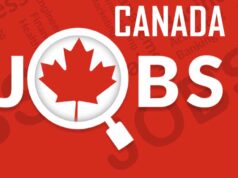Australia’s economy offers a diverse range of job opportunities for skilled workers from abroad. With a well-structured immigration system, Australia focuses on attracting immigrants to fill employment gaps in various sectors. This approach not only aids in the growth of the country’s skilled workforce but also provides immigrants with an opportunity to thrive in a dynamic job market.
It’s important for those who want to relocate to know what kinds of employment are out there and which areas have the highest demand. According to local market insights, several industries—such as technology, engineering, and healthcare—are always in need of qualified personnel. The possibility of employment for immigrants in Australia can be greatly influenced by the availability of these occupations and the level of demand.
Key Takeaways
- Australia attracts skilled workers to support various sectors.
- Understanding job availability can influence successful employment.
- Local market insights are critical in the job-seeking process.
Overview of Australia’s Job Market
The job market in Australia is dynamic and provides skilled workers from a range of sectors with a wide range of options. Your chances of finding work are especially good if you have qualifications for specific in-demand jobs.
High-Demand Professions
The Skilled Occupation List (SOL) is constantly being shaped by the Australian economy in order to address job shortages. According to the most recent data, there is a large need for experts in engineering, technology, and healthcare. ICT security specialists and software engineers are in high demand, and there is steady growth in the software and applications programming fields. Detailed updates on job demands can be found on the Priority Migration Skilled Occupation List (PMSOL).
Regional Employment Opportunities
Outside of big cities like Sydney and Melbourne, there can be a plethora of employment opportunities for foreigners thinking about relocating to Australia. In order to boost regional growth and address local talent shortages, certain regions actively encourage immigration. There are jobs in many different industries, such as construction, services, and agriculture, and some areas even provide incentives for moving. Understanding regional demands is crucial, as outlined in the Australian Labour Market reports.
Visa Information and Work Rights
Securing the right to work in Australia requires navigating the immigration system. Understanding the different kinds of work visas that are available as well as your rights and protections at work as an immigrant are two crucial things.
Types of Work Visas
Australia provides a range of work visas suitable for varying skill levels, job types, and lengths of stay. The Australian Skilled Migration programme, which offers visas like the Skilled Independent visa (subclass 189) for employees who are not sponsored by an employer or family member, is the main path for skilled workers. Another option is the Skilled Nominated visa (subclass 190), if state nomination works for you.
For temporary work, you might consider the Temporary Skill Shortage visa (subclass 482), aimed at addressing labour shortages. Your employment must correspond to an occupation on the Skilled Occupations List, which defines in-demand skills. Additionally, employer-sponsored visas provide opportunities if you have a job offer from an Australian employer.
Rights and Protections for Immigrants
Immigrant workers in Australia are entitled to certain rights and benefits that are mostly in line with those of Australian residents. Safety regulations, breaks, and minimum salary are examples of fundamental rights. The law specifies that your employer cannot cancel your visa; this authority rests solely with the Australian Department of Home Affairs.
It’s critical to comprehend your rights under the Fair Work Act of 2009 in order to guarantee that you receive extra benefits and fair market pay rates. Additionally, discrimination at employment on the basis of age, gender, ethnicity, or sexual orientation is prohibited. The national workplace relations organisation that can help resolve employment disputes and enforce these rights is the Fair Work Ombudsman.
Utilizing Job Boards
Employing the power of online job boards is a cornerstone of modern job search. Websites like Seek and Indeed Australia provide extensive listings for job opportunities across various industries. Be sure to:
- Regularly check these platforms as new jobs are posted daily.
- Utilize filters to narrow down to roles that match your skills and experience.
Networking and Community Support
Beyond online searches, your networking efforts can be pivotal. Attend industry-specific events and join organizations for professionals in your field to create valuable connections. Use platforms such as LinkedIn to:
- Connect with industry peers and hiring managers.
- Engage in group discussions to demonstrate your expertise.
Remember, in Australia, personal referrals can often lead to job opportunities that aren’t advertised publicly.
Settling in Australia
Moving to Australia can be a life-changing decision. It’s important to understand the lay of the land, including where you might live and the cost of living, as well as how to adjust to the Australian culture and access support services that can help ease your transition.
Accommodation and Living Costs
Finding a place to live is one of your first priorities upon arriving in Australia. The options vary from renting an apartment in the city to buying a house in the suburbs. Renting, known as leasing, can be anywhere from AUD $200 to $600 per week depending on the city and size of the accommodation.
Indicative weekly rental costs in major cities:
- Sydney: AUD $450-$600
- Melbourne: AUD $350-$550
- Brisbane: AUD $300-$450
- Adelaide: AUD $250-$400
- Perth: AUD $300-$450
Living costs in Australia include groceries, utilities, transport, and healthcare. On average, expect to spend between AUD $1,000 and $1,500 per month on these essentials.
Cultural Adaptation and Support Services
To ensure that you receive additional benefits and fair market pay rates, it is essential to understand your rights under the Fair Work Act of 2009. Furthermore, it is illegal to discriminate in the workplace on the grounds of age, gender, race, or sexual orientation. The Fair Work Ombudsman is a national workplace relations body that can assist in resolving employment issues and enforcing these rights.
You can find support through various services like:
- Community groups and centers which offer settlement support.
- Migration assistance programs which provide advice on legal rights, employment, and visa entitlements.
- Language classes to help non-native speakers improve their English and better integrate into the community.
Adjusting to a new culture takes time, but with the right support and an open mind, you can enjoy what Australia has to offer.













